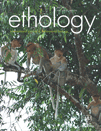
ETHOLOGY
metrics 2024
Advancing the Science of Animal Behavior
Introduction
ETHOLOGY, published by WILEY, is a prestigious journal that has been at the forefront of animal behavior research since its inception in 1986. With an ISSN of 0179-1613 and E-ISSN 1439-0310, this journal holds a significant position, categorized in the Q1 quartile for Animal Science and Zoology and Q2 for Ecology, Evolution, Behavior, and Systematics as of 2023. Recognized for its rigorous peer-review process and comprehensive scope, ETHOLOGY publishes cutting-edge research that illuminates the complexities of animal behavior, making it an invaluable resource for researchers, professionals, and students alike. With an impact factor that underlines its relevance in the field, the journal's commitment to advancing knowledge in ethology is evident through its extensive citation and ranking metrics, including a commendable position in Scopus for both Animal Science and Zoology as well as Ecology. Though it does not offer open access, the journal remains a pivotal platform for the dissemination of innovative studies that contribute to our understanding of wildlife and their ecosystems.
Metrics 2024
 0.58
0.58 1.30
1.30 1.70
1.70 86
86Metrics History
Rank 2024
Scopus
IF (Web Of Science)
JCI (Web Of Science)
Quartile History
Similar Journals

JOURNAL OF COMPARATIVE PSYCHOLOGY
Fostering Innovation in Behavioral ResearchJOURNAL OF COMPARATIVE PSYCHOLOGY is a prestigious academic journal published by the American Psychological Association, dedicated to advancing the understanding of behavioral processes across diverse species. With its ISSN 0735-7036 and E-ISSN 1939-2087, the journal has been a cornerstone of comparative psychology research since its inception in 1983. It primarily caters to the fields of ecology, evolution, and behavior, ranking impressively in the Q2 quartile in the category of Ecology, Evolution, Behavior and Systematics, and Q3 in the miscellaneous Psychology category as of 2023. This journal serves as a vital platform for disseminating high-quality research, addressing both fundamental questions and applied issues in systematic studies of behavior across species. Although not open access, its rich repository of research articles, meta-analyses, and reviews makes it an indispensable resource for researchers, practitioners, and students striving to deepen their knowledge and foster innovation in comparative psychological studies. With a commitment to rigorous peer review and scholarly excellence, the JOURNAL OF COMPARATIVE PSYCHOLOGY is a key player in shaping the discourse within its field and driving future research.

Journal of Vertebrate Biology
Innovating research in animal science and ecology.Journal of Vertebrate Biology, a reputable publication established by the Institute of Vertebrate Biology in the Czech Republic, serves as a vital platform for research across the fields of Animal Science and Zoology, Aquatic Science, and Ecology, Evolution, Behavior and Systematics. With its ISSN 2694-7684 and a commendable 2023 Q2 ranking in multiple categories, this open-access journal embraces innovative scientific inquiry and fosters academic discourse. The journal's commitment to disseminating high-quality research is reflected in its Scopus rankings, positioning it within the top quartile in several impactful areas. As it continues to converge its focus until 2024, researchers, professionals, and students alike are encouraged to engage with cutting-edge studies that advance our understanding of vertebrate biology. This publication stands out not only in its scholarly contributions but also in enhancing global awareness of biodiversity and conservation issues.
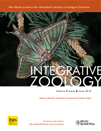
Integrative Zoology
Championing Excellence in Zoological SciencesIntegrative Zoology is a distinguished journal published by WILEY, focusing on advancing the field of zoological sciences through the integration of various biological disciplines. With both ISSN 1749-4877 and E-ISSN 1749-4869 identifiers, this journal features research that fosters a deeper understanding of animal biology, ecology, and conservation strategies. As a testament to its impact, Integrative Zoology is recognized within the Q1 category of Animal Science and Zoology in 2023, ranking an impressive #27 out of 490 journals in its field, placing it in the 94th percentile among peers. Published in the United Kingdom, this journal not only serves as a critical platform for novel research but also engages a global audience, inviting submissions that bridge theoretical and practical aspects of zoology. While not entirely open access, the journal remains committed to disseminating high-quality research that contributes substantially to scientific advancements. Through its continuous publication since 2008, Integrative Zoology aims to inspire researchers, educators, and students alike, making it a cornerstone for anyone passionate about the complexities of animal life.

ANIMAL BIOLOGY
Unveiling the Wonders of BiodiversityANIMAL BIOLOGY is a distinguished journal published by BRILL, focusing on the dynamic fields of Animal Science and Zoology, as well as Ecology, Evolution, Behavior, and Systematics. With an ISSN of 1570-7555 and an E-ISSN of 1570-7563, this quarterly journal serves as a pivotal platform for researchers and professionals seeking to contribute to the understanding of animal biology across diverse ecological contexts. The journal is recognized with a 2023 Scopus ranking of #234 out of 490 in the Animal Science and Zoology category, placing it within the 52nd percentile, alongside a rank of #409 out of 721 in Ecology, marking a solid contribution to the field. Although it currently holds a Q3 quartile in both categories, its commitment to quality research and novel insights continues to bolster its significance within the academic community. The open access option coupled with its publication history from 2003 to 2024 ensures a wide dissemination of knowledge, drawing in a global audience of researchers, professionals, and students eager to explore the intricacies of animal biology. By promoting high-quality discussions and innovative studies, ANIMAL BIOLOGY plays an essential role in advancing the understanding of life sciences and the evolution of biodiversity.

ZOOLOGICHESKY ZHURNAL
Fostering a deeper understanding of life’s diversity and evolution.Zoologichesky Zhurnal, a prominent journal in the field of Ecology, Evolution, Behavior and Systematics, has been a vital publication since its inception in 1950. Published by MAIK Nauka-Interperiodica in the Russian Federation, this journal has established a notable reputation in disseminating scientific research and advancing knowledge in zoology. With its coverage spanning from 1950 to 2023, and a specific convergent focus during 1982-1983, this journal contributes significantly to the ecological and evolutionary sciences, even though it currently holds a Q4 classification in the 2023 category quartiles, indicating its niche positioning among peers. Researchers and students engaged in the study of biological sciences, particularly those interested in the dynamics of ecosystems, behavior of species, and evolutionary processes, will find valuable insights and original research articles within its pages. While access to this esteemed journal is not open, it remains an essential resource for those seeking to deepen their understanding of zoological sciences.

GENES BRAIN AND BEHAVIOR
Bridging Genetics and Behavioral Neuroscience for a Deeper UnderstandingGENES BRAIN AND BEHAVIOR is a leading journal published by Wiley that focuses on the intricate interplay between genetic factors and behavioral neuroscience. With a robust ISSN of 1601-1848 and an E-ISSN of 1601-183X, this journal serves as a premier platform for innovative research that spans across multiple fields including genetics, neurology, and behavioral neuroscience. Recognized for its significant impact with a 2023 categorization of Q1 in Behavioral Neuroscience and Q2 in both Genetics and Neurology, GENES BRAIN AND BEHAVIOR asserts itself as an influential resource for scholars, practitioners, and students alike, facilitating the advancement of knowledge in these dynamic areas. Its Scopus rankings underscore its prominence—ranking #18 in Behavioral Neuroscience and #45 in Neurology, placing it in the top percentiles among its peers. Although not an open-access journal, the rigorous peer-review process ensures high-quality publications, pivotal for those pursuing cutting-edge research and applications. With a history of convergence from 2002 to 2024, this journal continues to foster academic dialogue and discovery in the ever-evolving landscape of brain and behavioral studies.
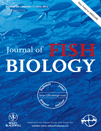
JOURNAL OF FISH BIOLOGY
Diving into the Science of Fish RelationshipsJOURNAL OF FISH BIOLOGY, published by Wiley in the United Kingdom, is a distinguished peer-reviewed journal dedicated to advancing the understanding of the biology and relationships of fishes. With a robust history from its inception in 1969 to its future publications extending into 2024, the journal occupies a pivotal position in the academic landscape of aquatic sciences and ecology. Holding a notable Impact Factor and recognized within the second quartile (Q2) for both Aquatic Science and Ecology, Evolution, Behavior and Systematics, it serves as an essential resource for researchers, professionals, and students alike. The journal’s contributors delve into diverse topics ranging from evolutionary biology to conservation strategies, fostering a dynamic interchange of knowledge and innovation within the fish biology community. Access options are currently via subscription, ensuring high-quality, curated content that reflects the latest empirical research and theoretical advancements in the field.
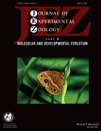
JOURNAL OF EXPERIMENTAL ZOOLOGY PART B-MOLECULAR AND DEVELOPMENTAL EVOLUTION
Advancing the frontiers of molecular and developmental evolution.JOURNAL OF EXPERIMENTAL ZOOLOGY PART B-MOLECULAR AND DEVELOPMENTAL EVOLUTION, published by Wiley, is at the forefront of research in the fields of molecular biology, developmental biology, and evolutionary science. With an impressive impact factor reflective of its significance, this journal maintains a prominent position in the academic landscape, evidenced by its Q1 ranking in Animal Science and Zoology, as well as Ecology, Evolution, Behavior and Systematics for 2023. It rigorously publishes innovative research spanning a wide array of topics pertinent to molecular and developmental evolution, making it an invaluable resource for researchers, professionals, and students alike. This journal not only offers Open Access options, enhancing the visibility of groundbreaking findings, but also supports interdisciplinary collaboration by integrating insights from genetics and molecular medicine. With a commitment to advancing knowledge, the journal is poised to contribute significantly to our understanding of biological processes and evolutionary dynamics through its convergence of research from 2003 to 2024.
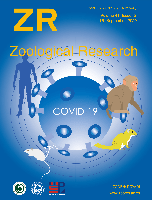
ZOOLOGICAL RESEARCH
Empowering Researchers with Unrestricted Access to KnowledgeZoological Research, published by Science Press, stands as a premier open-access journal in the fields of animal science, zoology, and ecology. Since its inception in 1980, it has fostered an inclusive platform for innovative research and dialogue within the scientific community, enabling researchers from across the globe to share their findings and insights. The journal's significant impact is underscored by its classification in the Q1 quartile across multiple categories, including Animal Science and Zoology, Ecology, and Nature Conservation for 2023, as well as its impressive rankings within Scopus, placing it in the top tier of its respective fields. Situated in Beijing, China, Zoological Research not only contributes to advancing knowledge but also emphasizes the critical importance of conservation practices in today’s rapidly changing ecosystems. With its commitment to open access, researchers, educators, and students alike benefit from immediate, unrestricted access to vital scientific information, making it an essential resource for anyone involved in the biological sciences.

LEARNING & BEHAVIOR
Advancing Insights in Learning and BehaviorLEARNING & BEHAVIOR is a distinguished academic journal published by SPRINGER that serves as a critical platform for the dissemination of research in the fields of behavioral neuroscience and cognitive psychology. With an ISSN of 1543-4494 and an E-ISSN of 1543-4508, this journal publishes high-quality, peer-reviewed articles that explore the complexities of learning processes and their behavioral implications. Despite its current Q4 status in Behavioral Neuroscience and Q3 in both Cognitive Neuroscience and Experimental and Cognitive Psychology, LEARNING & BEHAVIOR remains a valuable resource for researchers seeking to enhance their understanding of these dynamic fields. The journal has a converged publication timeline from 2003 to 2024, ensuring that it captures emerging trends and innovative methodologies. With robust accessibility options for a diverse readership, the journal fosters a comprehensive academic environment, inviting submissions that contribute to theoretical advancements and practical applications in understanding behavior. Authors and readers are encouraged to leverage this journal to engage with cutting-edge research that drives the behavioral sciences forward.